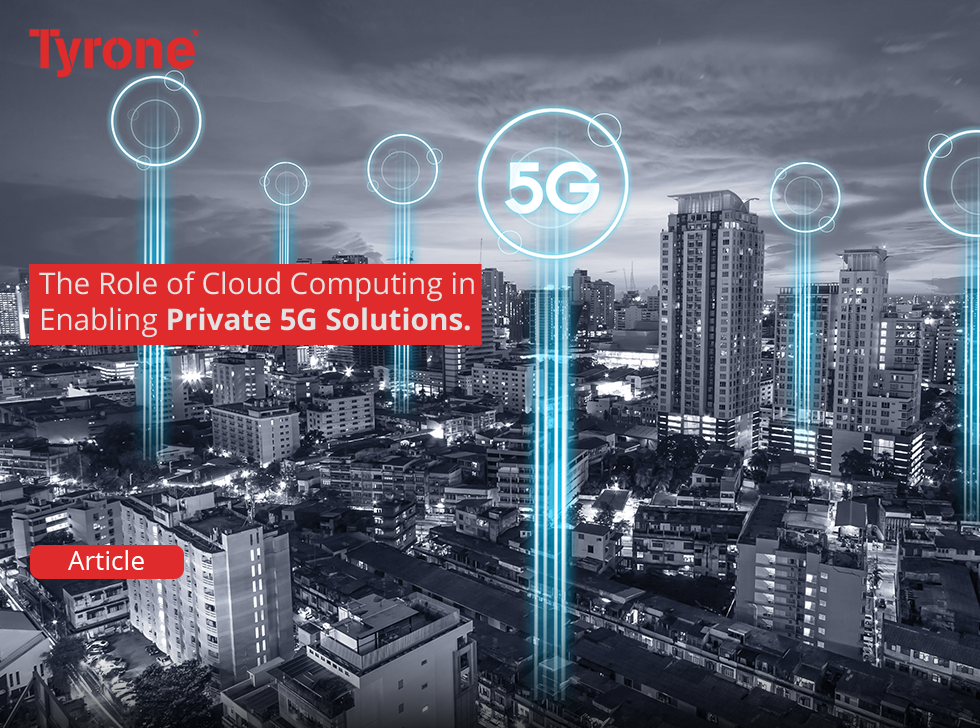Introduction
In this digital age, connectivity is essential for businesses to thrive. With the advent of 5G technology, organizations have gained access to ultra-fast networks capable of handling vast amounts of data. However, to fully leverage the potential of 5G, cloud computing has become a crucial enabler. By combining cloud computing and private 5G solutions, businesses can unlock a new realm of possibilities.
Understanding Cloud Computing
Cloud computing refers to the delivery of computing services over the internet, allowing users to access and utilize resources such as storage, processing power, and software applications remotely. Instead of relying on local infrastructure, cloud computing provides scalable and on-demand services that can be accessed from anywhere with an internet connection.
Private 5G Solutions: An Overview
Private 5G solutions, as the name suggests, provide dedicated and secure networks for specific organizations or entities. These networks leverage the power of 5G technology to deliver ultra-low latency, high bandwidth, and superior reliability. By implementing private 5G solutions, businesses can ensure optimal network performance and enhanced control over their communication infrastructure.
The Synergy Between Cloud Computing and Private 5G Solutions
Cloud computing acts as a catalyst in enabling private 5G solutions by providing the necessary infrastructure and resources. Through cloud-based deployments, organizations can build and manage their private 5G networks more efficiently. The cloud offers centralized control and monitoring capabilities, allowing businesses to optimize their network performance, allocate resources dynamically, and scale operations seamlessly.

Benefits of Cloud-Enabled Private 5G Solutions
Enhanced Network Performance: Cloud-enabled private 5G solutions offer improved network performance, enabling organizations to achieve low latency and high data transfer speeds. This ensures faster communication, real-time data processing, and reduced network congestion.
Increased Security: Private 5G solutions, when combined with cloud computing, provide enhanced security features. By leveraging cloud-based security protocols and encryption mechanisms, organizations can protect their data, communications, and devices from unauthorized access and cyber threats.
Scalability and Flexibility: Cloud computing enables the scalability and flexibility of private 5G networks. Businesses can easily adjust their network capacity and resources based on their requirements, allowing for seamless expansion or downsizing as needed.
Cost Efficiency: Cloud-based private 5G solutions eliminate the need for extensive on-premises infrastructure. By leveraging cloud resources, businesses can reduce capital expenditures, maintenance costs, and operational overheads, resulting in cost savings.
Use Cases for Cloud-Enabled Private 5G Solutions
Industrial Automation: Cloud-enabled private 5G networks facilitate the implementation of advanced industrial automation systems. This enables real-time monitoring, remote control, and predictive maintenance, leading to increased operational efficiency and reduced downtime.
Smart Cities: Cloud-based private 5G solutions play a crucial role in building smart cities. By integrating various IoT devices and sensors with private 5G networks, cities can enhance public services, optimize energy consumption, and improve traffic management.
Healthcare: Cloud-enabled private 5G solutions empower the healthcare industry with telemedicine, remote patient monitoring, and efficient data sharing. This enables healthcare providers to deliver better patient care, streamline operations, and enhance diagnostic capabilities.
Challenges and Considerations
While the integration of cloud computing and private 5G solutions offers numerous benefits, it also presents some challenges and considerations. These include data security and privacy concerns, network coverage and infrastructure requirements, interoperability with existing systems, and the need for skilled professionals to manage and maintain the network.
Future Prospects
The future of cloud-enabled private 5G solutions looks promising. As technology advances, we can expect increased adoption and integration of these solutions across various industries. The combination of cloud computing and private 5G will revolutionize connectivity, enabling new applications and unlocking unprecedented opportunities for businesses and individuals alike.

Conclusion
Cloud computing serves as a critical enabler for private 5G solutions, amplifying their capabilities and benefits. By harnessing the power of cloud computing, businesses can achieve enhanced network performance, increased security, scalability, and cost efficiency. Moreover, cloud-enabled private 5G solutions find applications in diverse sectors such as industrial automation, smart cities, and healthcare. As technology continues to evolve, the synergy between cloud computing and private 5G will continue to drive innovation and transform the digital landscape.












